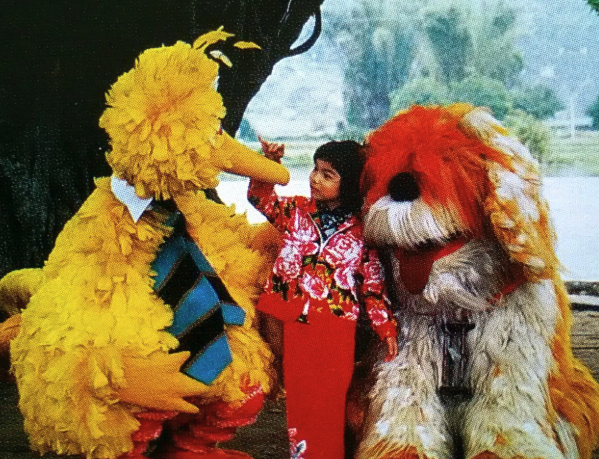
Why Kindness, Not Fixing, Creates Healing
I work with many clients who feel like they are not enough and who spend a great deal of energy worrying about what other people think of them. I deeply empathize with these experiences and often find that the roots of these feelings trace back to childhood neglect.
For one reason or another, their parents or guardians intentionally or unintentionally did not truly see them or celebrate their inherent goodness. What was missing was not love in every case, but attunement, curiosity, and consistent emotional presence.

I Thought Gratitude Was Cliché…Until I Learned This
Recently during Yoga Teacher Training class on Sunday we were talking about the Yamas and Niyamas, specifically Santosha, the second of the Niyamas, which means contentment. It's about cultivating a sense of enoughness and peaceful acceptance in the present moment.
People sometimes confuse it with complacency or just giving up, but it's actually more like an inner orientation, a way of being at ease with what is while still walking your path of growth. It's about accepting the present moment and recognizing reality as it is, rather than clinging to how we think it should be.
Santosha encourages us to stop measuring ourselves against others, because contentment really arises when we drop the comparison game. At its core, it's about inner sufficiency, "I am enough. This is enough."

I Spent Decades Numbing. Here's What I Learned About Feeling.
Why we need to feel our feelings has always been elusive to me. Growing up in a chaotic household, we had to numb to survive. In my house, feelings were ignored, we didn't have time to be sad, angry, or curious. That took away from our ability to be productive, and being productive was necessary to get to the next day and more importantly to have value and worth in the family. Competence was the currency of power, the more mistakes you made, the less your opinion mattered, the less you mattered. Sound familiar?
Imagine a ship caught in a storm. Someone wants to talk about how they're feeling, and they most definitely will be met with, "No! There's no time. Button down the hatches, there are more important things to attend to!" In a storm, there's no time to think about whether you're capable, how you’re feeling, or if you have the resources. You just have to try your best and hope it works out. Gratitude to our amazing nervous systems to be able to function that way to get us through storms. But it becomes a problem when there's always a storm and the nervous system never gets to relax. When we feel like there is no room for mistakes or slowing down, because something bad will happen or we will be labeled as not good enough.

The 'I'll Love Myself When...' Trap
I remember when I was younger, there was this little purple book from the 80s, written in Bookman font, called "How to Love Yourself." I don't remember much of what was actually in it, mainly because I flipped through it once and dismissed the whole thing. The activities seemed too simple, almost silly. "You can't just love yourself by giving yourself little hugs or saying nice things in the mirror," I thought. I was convinced that loving yourself required something bigger, more impressive. Some grand accomplishment that would finally make you worthy.
I was completely trapped in the "I'll love myself when..." trap. When I have lots of friends. When I find a partner. When I land a full-time job. When I win an award. The list went on and on.

Your feelings aren't the enemy…they're messengers
I was recently reading "101 Essays That Will Change the Way You Think" by Brianna Wiest, and her insights on feelings stopped me in my tracks.
So many of us (clients and therapists alike) resist feeling our emotions because we're terrified we'll get stuck there. What if I sink into sadness and never climb out?
But Wiest puts it perfectly: "Sadness will not kill you. Depression won't either. But fighting it will... Trying to change how you feel is like finding a road sign that points in the opposite direction of where you had intended to go and getting out to try to turn the sign, rather than the course of action."

Breaking the Perfectionist Trap: Why Process Matters More Than Outcomes
I'm currently taking Russ Harris's course on using Acceptance and Commitment Therapy for people-pleasing and perfectionism, and one insight has completely shifted my perspective.
The Problem: Perfectionists get trapped focusing solely on outcomes. We only feel relief when tasks are "done" — meaning we experience little to no joy during the actual work. This makes starting anything feel overwhelming because we're already dreading the grueling journey ahead.
Sound familiar?

Big Bird in China
I was talking with a client recently and they talked about how whenever they think about caring for themselves, it makes them tear up. It’s a really complicated emotion because it isn’t sadness, it isn’t joy, it’s the feeling you get when you encounter someone you haven’t seen in a long time and you miss so much that you just burst out in tears when you see them.
This reminded me of a powerful example of unconditional love I once witnessed while watching a documentary called “I Am Big Bird’ following the career of Caroll Spinney (yes, the puppeteer from Sesame Street.) In the documentary he goes to China and films with this young Chinese girl that speaks very little English. Even though he was speaking through a puppet suit, and she couldn’t communicate, there was an abundance of love they shared for one another. He opened up his heart and poured love into her and she did the same.

The Most Important Love Affair You'll Ever Have
I was sitting with a client the other day—let's call her Sarah—when she said something that made my heart ache in the most familiar way. "I just don't understand why he doesn't love me back," she whispered, tears threatening to spill. "What am I doing wrong?"
Oh, sweet Sarah. Sweet, beautiful, perfectly imperfect Sarah. She was asking the wrong question entirely.
Here's what I've learned from helping people navigate the treacherous waters of human connection: You cannot make someone love you. Not with the perfect outfit, not with the right words, not with sacrificing pieces of yourself until you're unrecognizable. It's like trying to force a butterfly to land on your shoulder—the harder you chase, the further it flies away.
But here's the plot twist that changes everything: You don't need to.

How to Recognize and Adapt to Learned Helplessness
In the landscape of human psychology, few concepts are as profound yet misunderstood as learned helplessness. This phenomenon, deeply rooted in our survival mechanisms, often emerges from the shadows of childhood trauma and continues to shape our adult lives in ways we may not even recognize.

Loving the Parts that Feel Unlovable
I know the wilderness trek through unworthiness intimately, that gnawing feeling that somehow you're 'not enough.' Like you, I became a master shape-shifter growing up. I could read a room and transform into whatever version of me would earn approval. The cruel irony is that each time we contort ourselves into acceptability, we reinforce the core belief that our authentic self is fundamentally unacceptable. Remember, self-acceptance isn't resignation, it's the most revolutionary act of self-care you can practice.

My Manifesto as Your Therapist
The purpose of my practice is to be fully present with genuine curiosity and unwavering compassion, to hold space for your courage to explore the depths of your inner world. To help you liberate yourself from the weight of external pressures, oppressive systems, and internalized messages that make you feel like there is something wrong with you. To nurture deeper, more authentic relationships rooted in the belief of your inherent worthiness.

Reclaiming Your Power
When healing from childhood trauma, you discover that authentic connection becomes an act of rebellion and courage—a testament to your strength as you willingly face uncertainty while trusting in your ability to handle whatever comes. Growing up without experiencing supportive validation made any connection feel dangerous because you learned others would manipulate and hurt you.
The Acceptance and Commitment Therapy technique called "Anchoring" helps ground you when life's storms—rumination, self-criticism, excessive worrying—threaten to sweep you away. It allows you to remain present, not dwelling on future worries, past regrets, or the stories your mind fabricates.
This anchoring helps quiet the relentless self-criticism that stems from fear of rejection—that voice insisting you're inadequate, prompting endless mental replays of conversations. All of this stems from your desperate craving for validation to feel safe, because when you were younger, how your abusers perceived you affected how you were treated.
Instead of striving to appear impressive, you learn to embrace not knowing, approaching life with curiosity about the humans before you. This authentic connection far surpasses external validation. You shift from needing others' approval to genuinely connecting with both your inherent worth and the unique qualities in others—reclaiming the agency that was stolen in childhood.

Wanting More than Just Validation?
Want actionable steps for change? Consider this: Validation isn't just comfort—it's essential groundwork. True transformation comes not from destroying who you are to create something new, but from building on self-compassion and curiosity. You can be completely lovable now AND become who you want to be.

The 90/10 Rule: The Hidden Science Behind Habit Formation
Ever wondered why habits are so hard to break? Science reveals it takes 66 days, not 21, to form a new habit. The 90/10 Rule shows that 90% of our actions are driven by our unconscious mind, while only 10% come from conscious decisions. Discover how your brain's natural efficiency shapes your habits and learn to work with, not against, these neural patterns.

Ways to Increase Self Love
At 13, I created a “Happiness Collective” scrapbook to remind myself of what brings me joy. It taught me the power of self-love and listening to thoughts. Shift negative self-talk with compassion, but listen to what frustrates you—it often signals change. Joy and growth come from mindful self-reflection.

Letting Go of Pain
Holding onto pain is like standing in the rain when someone invites you back inside. Refusing forgiveness deepens wounds and creates suffering. True healing requires releasing surface pain, embracing vulnerability, and setting boundaries that respect your values. Forgiveness isn’t about condoning harm but choosing peace over resentment to foster authentic connections and inner healing.

Not Your Typical Therapist
I’m not your typical "blank slate" therapist. I actively share my thoughts and knowledge, providing resources via email to see what resonates with you. I believe clients are the experts on their healing journeys, while I bring expertise from the therapeutic field. Together, we build a supportive, trusting relationship and explore the complexity of being human.

Better Human Interactions
What if our interactions were less transactional, focused on connection rather than validation? Imagine approaching others with the intent to create bonds rooted in care, not seeking something in return. Recognizing the pain of loneliness, we can appreciate the transformative power of genuine connection—feeling seen, heard, and valued.

Book of Delights
In “The Book of Delights,” Ross Gay shares a daily collection of essays that celebrate the moments of joy he encounters. His reflections, spanning from small pleasures to profound experiences, remind us to find delight in the present. Gay’s writing encourages mindfulness, urging us to appreciate simple joys and seek happiness amidst life’s challenges. This book invites us to slow down and notice the beauty around us, fostering gratitude and wonder. So, keep your eyes open for those glimmers of delight, and whenever you get the chance, raise your finger in the air and exclaim, “Delight!”

The Power of Fun
In "The Power of Fun," Catherine Price emphasizes the importance of incorporating fun into our lives. She identifies three key components of fun: playfulness, connection, and flow. Playfulness involves engaging in joyful activities without the pressure of outcomes, while connection focuses on sharing meaningful experiences with others to build bonds. Flow is the state of being so immersed in an activity that time slips away. Fun energizes us, filling us with enthusiasm and joy, while also enhancing our health by reducing stress and boosting the immune system. By prioritizing fun, we can experience greater energy, health, and happiness in our lives.